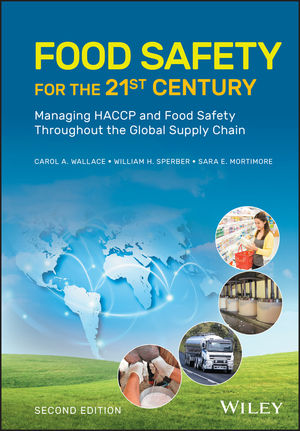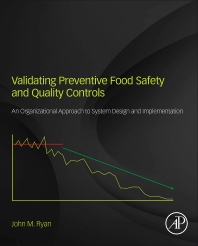Food safety concerns and equipment advances make high-pressure processing more appealing to refrigerated food processors.
You’ve heard about an idea whose time has come. Here’s a technology whose time has finally come.
Did you know high-pressure processing (HPP) technology dates back to the late 1800’s and early 1900’s? Scientists wanted to kill spoilage bacteria in highly perishable foods such as milk and meat. To do this, they packaged and placed those foods in specialized water cylinders and then increased the vessel’s hydrostatic pressure.
Bottom line. These researchers realized that pascalization (named after 18th century physicist-inventor Blaise Pascal, who studied the effects of pressure on fluids) could work. Because the pressure is transmitted uniformly (simultaneously, in all directions), food can retain its shape, even at extreme pressure. And because no heat is needed, the process maintains a product’s sensory characteristics while it kills harmful bacteria. Bacteria are inactivated at levels of 58,000 to 87,000 psi in cold water (at less than 45

Equipment innovations
The industry’s principal equipment suppliers are Avure Technologies Inc., Kent, Wash., and Europe’s NC Hyperbaric in Burgos, Spain.
Avure says it traces its history back to Sweden’s ASEA group, which worked in the mid-1950s on isostatic pressure technology commercialization (linked to U.S. research in Columbus, Ohio). ASEA became part of the ABB Group, Zurich, in 1988. A little more than a decade later, in 1999, the United States’ Flow International Corp. acquired ABB’s high pressure technology business and created the Avure trade name. Avure then became a private, stand-alone company in 2005.
Today, Avure says it has as many as 100 HPP installations worldwide involving ready-to-eat whole muscle and sliced meats, processed fruit and vegetables, fresh juices and smoothies, deli salads and dips, and shellfish. The company supplied some of the first widespread U.S. HPP applications (in the mid ‘90s) involving Wholly Guacamole maker Fresherized Foods, Saginaw, Texas; and processed meats giant Hormel Foods, Austin, Minn.
NC Hyperbaric began in 1999 as a spin-off of the Nicolas-Correa Group, a publicly traded European leader in milling machinery. Although NC Hyperbaric now is an independent company (controlled by the Nicolas-Correa family), both companies’ headquarters are in Burgos, Spain.
NC Hyperbaric says it has 64 HPP equipment installations worldwide (primarily in North America). Since 2005, the company’s North American partner has been Gridpath Inc., Toronto. Officials say Gridpath offers peripheral equipment to integrate the high pressure technology along with service and support for NC Hyperbaric installations.
Profiled last December by Refrigerated & Frozen Foods, Sandridge is using NC Hyperbaric equipment.
Asked specifically about his HPP equipment requirements, Mark Sandridge ranked his top four concerns, in descending order: volume capacity, overall footprint, cost and equipment shape.
Those points certainly aren’t lost on industry suppliers.
Jaime Nicolas-Correa is NC Hyperbaric’s U.S. commercial manager.
“Volume has always been the biggest concern in the U.S. food market,” he says. “At the beginning, the technology was not as fast and the production rates were not as high – which made the technology more expensive per pound. We have minimized those concerns by developing larger and faster machines.”
NC Hyperbaric says its latest new HPP unit can process more than 5,000 pounds per hour using 420-liter canisters (which hold packaged food during the process). Nicolas-Correa adds that a new iWAVE option “integrates the (pressure) intensifiers above the machine to reduce its footprint to 52 feet long by 13 feet wide.”
Providing another market perspective is Glenn Hewson, Avure’s vice president of global marketing. Hewson says U.S. food processors also have been concerned about HPP’s initial purchase price, operating costs and uptime. He adds that there’s been a general widespread “lack of knowledge on how to develop HPP products.”
For its part, Avure says it has addressed these concerns across several fronts.
“We have worked hard to lower the initial entry and operating costs of HPP equipment and we are proud to say that Avure HPP systems offer the highest throughput, highest uptime and lowest cost per pound/kilo of any HPP equipment vendor,” says Hewson. “Today’s third-generation equipment has approximately the same fully burdened cost of using chemical preservatives. Because most customers are either able to eliminate or greatly reduce the use of chemicals, HPP does not become an additive cost and processors are able to price a premium on an all-natural product.”
Avure says it formed an Avure HPP Contract Services Network, a worldwide group of companies that provide high pressure processing services. Hewson says these third-party operators offer large-scale production, new product testing and other services. Back in Washington, Avure also has an HPP food lab where its food technologists assist customers with recipe and process development, microbiological testing, packaging recommendations, HACCP plans and, where required, regulatory approval.
Hewson says Avure’s most popular model is a horizontal 350L HPP system. Last year saw the company introduce a mid-range, horizontal 100L unit for smaller operators.
“From a fully burdened cost perspective (purchase price, depreciation, labor, utilities, etc.), depending upon system choice and product being produced a typical cost would be between 2 and 8 cents per pound,” Hewson notes.
He concludes, “Last year, 2010, was the best year ever for HPP equipment sales. We estimate that processors ordered approximately 35 new systems in 2010 – more than double the orders of 2009 and 2008.
“Consumers want fresh, preservative-free products, the government wants low sodium and retailers want fresh but with shelf life,” he says. “Because these demands remove the traditional weapons (heat, preservatives, sodium) that processors use to create food safety and shelf life, HPP becomes one of the only viable options to meet these demands.”
Tech Talk: HPP: Want to try it?
Global Leading Foods, Coppell, Texas, (GLF) opened a high-pressure processing (HPP) facility last October in the Dallas / Ft. Worth Metroplex. Officials say their operation offers the technology on a contract basis and is ideal for anything from ready-to-eat meats to wet deli salads and sauces.
“By expanding the opportunity for the use of HPP by providing contract processing services, we are bringing all these benefits to a much larger segment of the marketplace,” says GLF Partner Rick DeHerder. “Our facility offers processors the opportunity test market new products or to produce large production volumes.”
DeHerder and other GLF partners, Tim and Kelley Battles (father and son) say they have a combined 51 years experience in worldwide food and beverage operations, sales and marketing.
GLF’s operation is co-located in a multi-temp cold storage and distribution center owned by Castle & Cooke. DeHerder notes that GLF also offers a range of value-added services such as labeling, kitting, packaging, and shipping - while maximizing distribution efficiencies, even for complex products. For the record, GLF has complimentary product storage and handling privileges with Castle & Cooke, in addition to eight dedicated dock doors.
GLF’s dedicated HPP facility uses Avure Technologies’ high-capacity model QFP 350L-600 HPP system. Officials say the unit has a working capacity of 350 liters per cycle, which is equivalent to about 25 million pounds of product per year.
“Together (with Avure), we can offer joint product development assistance services to processors to create new food applications,” says Kelley Battles. “We see consumer preferences for more healthful products with less sodium and fewer chemical ingredients . . . We also believe retailers will continue to push for a safe supply chain and will increasingly look for HPP product as a condition of listing.”
Battles says GLF addresses many food processors’ top technology concern.
“The cost of entry into HPP can prohibit many companies to moving their product to the technology. With that – and along with the lack of strategically located HPP toll-processing services – we felt that we could offer a cost-effective solution for many companies.”
Battles says GLF aspires to become a full business partner with a select group of food companies. Long term, he says, GLF would open other regional HPP sites.






